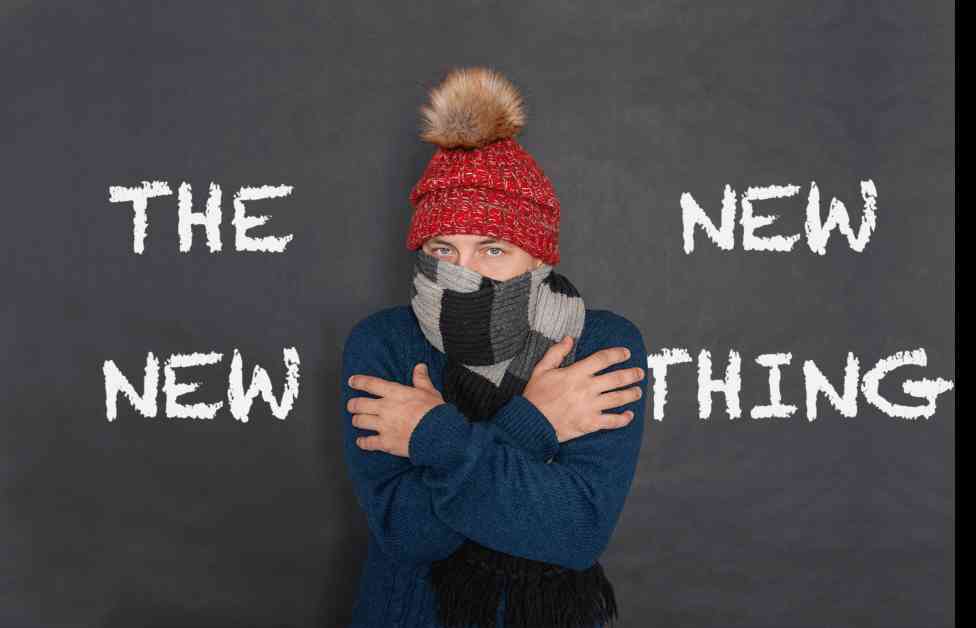Creating a Freezing Cold Takes Platform for Education Debates
As football season kicks off, the airwaves are filled with self-assured pronouncements from analysts, pundits, and sports-radio personalities. However, amidst the noise, there exists a platform that holds these so-called “experts” accountable for their misguided predictions – Freezing Cold Takes. This sports media site resurfaces old hot takes that have been proven wrong, serving as a reminder of the consequences of spewing baseless opinions without repercussions.
In the realm of education, a similar level of accountability is sorely lacking. Countless individuals, whether they be pundits, advocates, funders, researchers, or vendors, often tout the next great solution in education, only to retreat when their promises fall flat. The absence of repercussions for these individuals leaves students, educators, and taxpayers bearing the brunt of their failed initiatives, while they simply move on to the next big idea.
One prime example of this phenomenon is the once-hyped “Finnish Education Miracle,” which garnered widespread attention before fading into obscurity when it failed to deliver the promised results. Similarly, the fervor surrounding “teacher evaluation reform” a decade ago ultimately fizzled out when the reforms failed to yield the transformative improvements that were promised. The pattern repeats itself with each new education trend that captures the spotlight, from tech enthusiasts advocating for more cell phones in classrooms to the rise and fall of Massive Open Online Courses (MOOCs).
Currently, the spotlight is on “Sobral’s education miracle,” with various organizations and foundations hailing the Brazilian municipality as a beacon of education transformation. Enthusiasts have been quick to tout artificial intelligence as the future of education, promising that it would revolutionize learning within a matter of weeks or months. However, as history has shown, these bold claims often fall short of their lofty expectations.
The allure of promoting the latest education trend lies in the rewards it brings – grant funding, speaking engagements, and media coverage. Those who champion these initiatives often receive more accolades than skeptics who question the validity of their claims. While some may argue that overpromising is necessary to drive policy change, the lack of accountability leaves stakeholders in the dark about the credibility of those pushing for these changes.
In an ideal world, there would be a Freezing Cold Takes in Education platform that holds education influencers accountable for their empty promises and misguided initiatives. By highlighting past failures and inaccuracies, this platform could serve as a deterrent for those inclined to hyping up the next big thing in education. Moreover, it would provide stakeholders with valuable insights into the track record of these influencers, allowing them to make more informed decisions.
The absence of consequences for those who peddle destructive pedagogies or toxic dogmas perpetuates a cycle of shifting from one education trend to the next without ever being held to task for their failures. This cycle gives rise to a cohort of individuals who seamlessly transition from one dubious idea to another, without ever being questioned about their past missteps or the rationale behind their constant pivoting.
Key Questions for Accountability
As we navigate the ever-changing landscape of education trends and initiatives, it is crucial to ask critical questions that hold influencers accountable for their actions. Do these individuals truly understand the subjects they speak on? Have their past initiatives been successful, and if so, why the need for constant change? If their past endeavors have failed, what guarantees do they offer that this time will be different?
These questions should form the basis for a Freezing Cold Takes for Education platform, shedding light on the credibility of those shaping the education landscape. It is vital that these influencers face public scrutiny commensurate with the impact they have on the education sector, mirroring the level of accountability expected from educators and schools.
Moving towards a more transparent and accountable education discourse requires a shift in how we evaluate the claims of those who seek to influence policy and practice. By holding these individuals to a higher standard of scrutiny, we can ensure that education initiatives are grounded in evidence and efficacy, rather than empty promises and baseless speculation.
Subheadings
The Lack of Accountability in Education Debates
Examining Past Failures and Empty Promises
The Need for Transparency and Accountability in Education Influencers
In conclusion, creating a Freezing Cold Takes platform for education debates is essential in fostering a culture of accountability and transparency within the education sector. By highlighting past failures and inaccuracies, this platform can serve as a deterrent for those inclined to promote empty promises and misguided initiatives. It is time to hold education influencers to a higher standard of scrutiny and ensure that their claims are grounded in evidence and efficacy.

